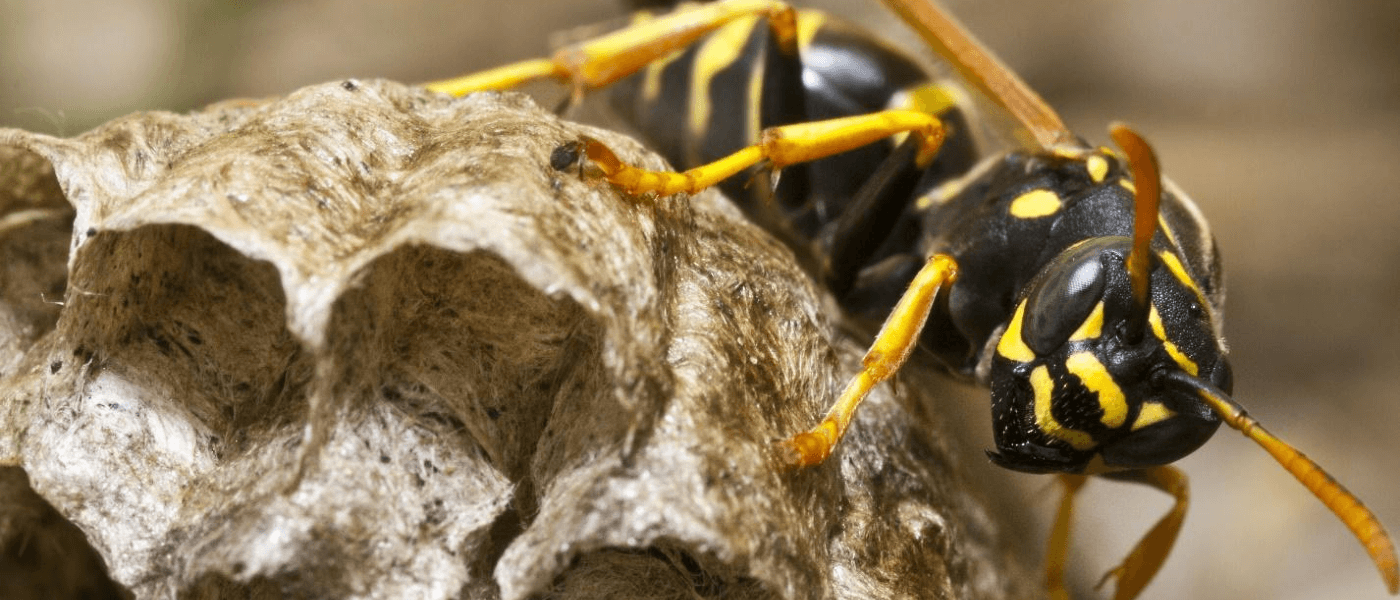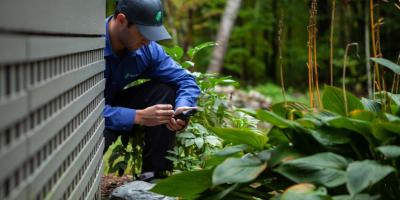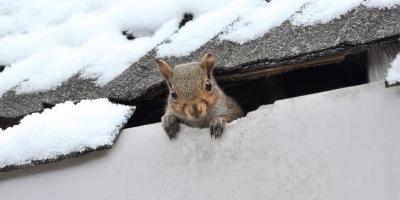Where You're Most Likely to Find Wasp Nests

More often than not, you run into a wasp long before you discover its nest. And if you think a wasp on its own is bad news, a whole wasp nest on your commercial or residential property is a disaster waiting to happen.
Near any active wasp nest, you’ll find a whole squadron of angry adult wasps ready to defend it. And the bigger the nest, the bigger and more dangerous the squad protecting it -- not to mention what it says about how long you’ve had a wasp problem.
And although the solution to a wasp infestation may sound simple, actually doing it is easier said than done.
Wasp Removal: Simple, But Not Easy
At a glance, wasp removal seems like a piece of cake: Find wasp nests early and treat them. Oh, and do that way before their colonies get too established.
Problem is, before you can find them, you need to know where to look. However, wasps prefer to stay out of sight, out of mind, so they intentionally hide their nests in places that are hard to reach.
What a Wasp Wants in a Nesting Site
Wasps generally look for three things when deciding where to build their nests:
- A spot that offers some form of shelter, like hollow logs, attic eaves, windowsills, etc. They’ll use the corners of buildings or sometimes build under or near stones -- someplace that won’t be disturbed.
- A place that’s inaccessible to intruders, especially ones that can’t fly -- like chimneys, second floor windows and the eaves of barn and outbuildings.
- Someplace warm, like building cavities or insulated walls, preferably a spot with some sun exposure.
So, You Found the Wasp Nest -- Now What?
The faint of heart might want to skip ahead and go straight to calling the pros. But if you’d really like to know what to do once you’ve located a wasp nest on your property, we’ll tell you.
- First, you’ll need to procure an aerosol can of wasp spray (do you see where this is going?)
- Next, you’re going to have to spray the insecticide all around the outside of the nest. It’ll immediately start to foam up, sealing in the wasps. The best time to do this, by the way, is at night, when wasps are the least active.
- Finally, wait at least 24 hours and check on the nest, respraying if necessary.
When you’re sure the nest is sealed and the wasps inside are dead, then and only then should you knock the nest down with a stick or a pole.
Proceed with Caution
Take note: Anyone looking to take care of a wasp nest themselves must be aware that there is no way to 100% ensure that the treatment was completely effective, nor is there a way to guarantee that you won’t be stung during treatment. In other words: DIY at your own risk, and never if you’re allergic to stings.
If the treatment requires the use of a ladder, this creates additional risk as it removes your opportunity for a quick escape if needed. In cases like this, we highly encourage anyone to call in a pro who is trained to handle pests at any height and is certified to safely work on a ladder and/or a forklift.
What Not to Do About Wasps
When treating a wasp infestation, it’s equally important to know what you should not do as what you should do:
- Do not try to knock down the nest prior to treatment. Wasps don’t take kindly to bullies, and they far outnumber you.
- Don’t use flammable liquids -- save those for powering your lawnmower.
- Finally, don’t try to use a vacuum to hoover them up. Trust us on that one.
The Best Way to Deal with Wasps
Quite frankly, the best pro tip we can provide when it comes to treating a wasp issue is this: Don’t.
While removing wasps truly is easier said than done, it’s what we do all day long, so we’ve become expert at it. Not only do our pest control professionals know wasps and how to treat them, we can proactively treat trouble areas to prevent them from nesting in the first place.
Whether you’ve got wasp problems now or you just want to avoid them in the future, contact us for a free quote today.



